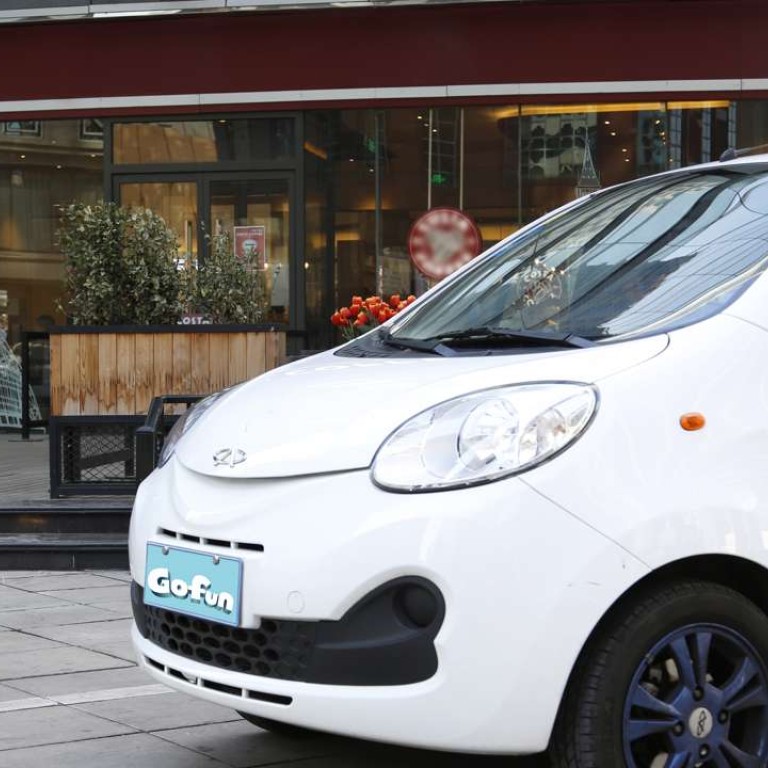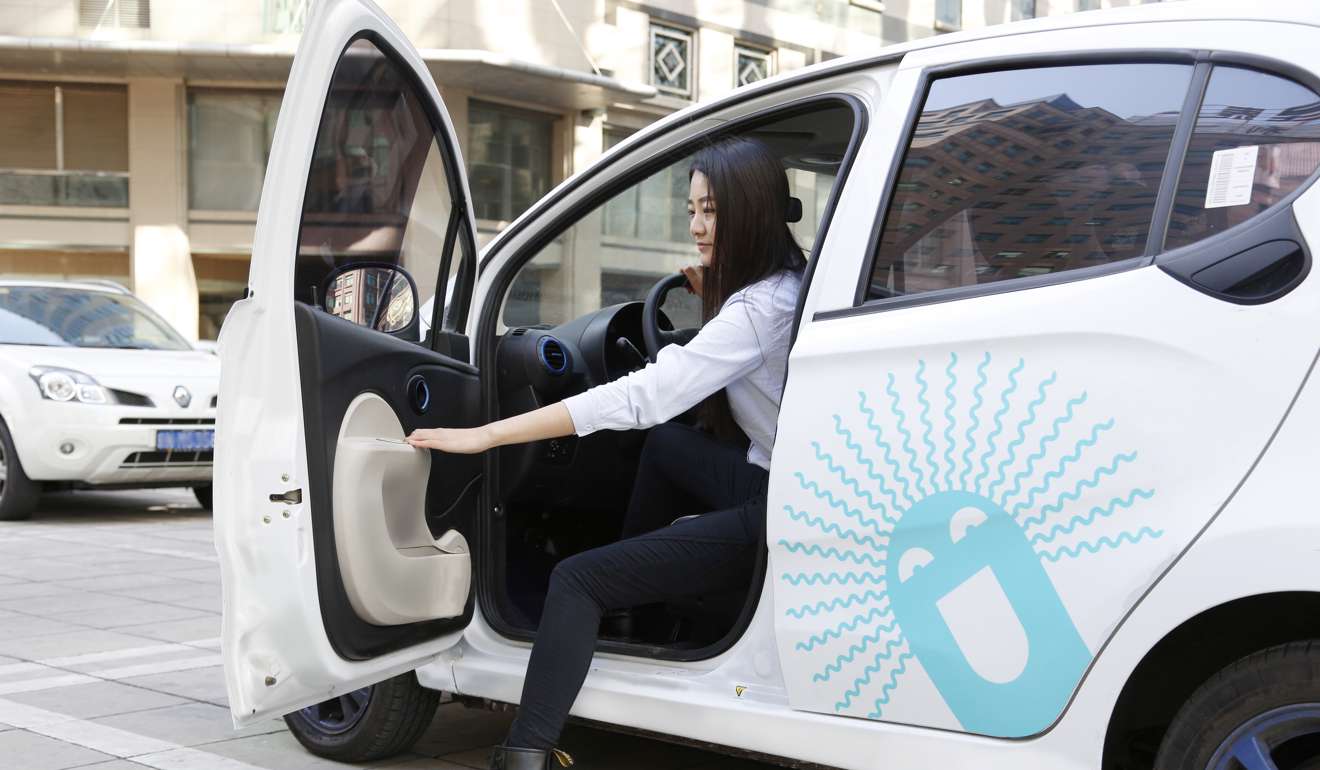
Will car-sharing prove the white knight to save China’s flagging electric-vehicle industry?
More than 30 major Chinese companies – most backed by major car makers – have jumped on the so called “flexible mobility” bandwagon
China’s electric vehicle (EV) industry has hit a bump in the road since the start of the year, in producing a challenger to the global market leader Tesla, after the government stopped showering the domestic sector with heavy subsidies, which had proved key for their survival and success until now.
How to encourage people to use or even buy EVs is proving more of a challenge than many makers had imagined, but one area of the auto industry that does appear to have struck the right cord in encouraging customers to use EVs – the car rental sector.
Riding high on the growth wave of China’s so-called sharing economy, more than 30 major Chinese companies – most backed by major carmakers including SAIC Motor and Geely Automobile – have jumped on the “flexible mobility” bandwagon, in developing apps which allow people to rent electric cars whenever and wherever they want.
A world leader in the global on-demand car sharing service market is Car2Go, a subsidiary of Daimler providing car-sharing services in European and North American cities, but its cars are petrol-driven Smart cars.
However, more than 95 per cent of the estimated 30,000 cars now being used on China’s emerging car-sharing market are new energy vehicles (NEVs), a classification which covers electric cars, plug-in hybrids and fuel-cell cars.
And according to a recent report from Strategy&, PWC’s strategy consulting business, the country’s low- or zero-emissions fleet is set to grow at an average 50 per cent annually in the coming five years, spurred on by electric-car makers’ desire to promote their products, and their relatively low running costs.

“The car-sharing model is proving really helpful in expanding the presence of electric cars on China’s roads,” said Bill Peng, a partner at Strategy&, adding the service is likely to see significant expansion by 2020, very much in line with Beijing’s goal to promote the use of NEVs in an effort to solve heavy pollution and dreadful traffic congestion in many urban areas.
China sold 507,000 NEVs last year, making it the world’s largest market, but that was largely thanks to generous government incentives.
However, sales plunged 74.4 per cent in January as Beijing cut subsidies after discovering a large number of companies had been claiming too much, effectively scamming the government to promote their own sales.
Car-sharing as a concept actually dates back to 1980s Europe, but in China it has now been freshly re-labelled as an environmentally friendly way to enjoy driving freedom, and a trendy lifestyle for the tech-savvy young generation.
It is a convenient, green and fast way to commute. With one shared car, 10 to 15 private cars can be taken off the road
The process is as simple as downloading an app and completing an online registration, and anyone with a driving licence can enjoy “the hop in and drive around” experience, says Tan Yi, chief operating officer of the Beijing-based car-sharing firm Gofun, which operates 1,100 electric cars made by domestic carmaker Chery.
“It is a convenient, green and fast way to commute. With one shared car, 10 to 15 private cars can be taken off the road,” he said.
He insists that renting an electric car is a lot cheaper than hailing a taxi, and like many rivals Gofun offers coupons to attract users in the increasingly crowded market.
First-time users of the service, for instance, can rent cars for 1 yuan (14 US cents) for three hours.
But the withdrawal of subsidies and ever-growing competition has made it difficult for providers such as Gofun to be profitable in the near term, according to the report from Strategy&.
Wang Lifeng is chief executive of Beijing-based Togo, one of the few companies to use petrol-driven vehicles, and argues for now that fossil-fuel driven cars remain the better option.
“The lack of charging points in China means electric car borrowers can only drive short distances.
“Not to mention, they have to borrow and return the cars in certain parking lots equipped with charging points for their particular brand of car ,” said Wang.
“EVs offer far from the flexibility promised by those service providers,” he said.
“The underdeveloped charging infrastructure in China will remain a challenge to the service’s wide adoption in China for some time to come.”

